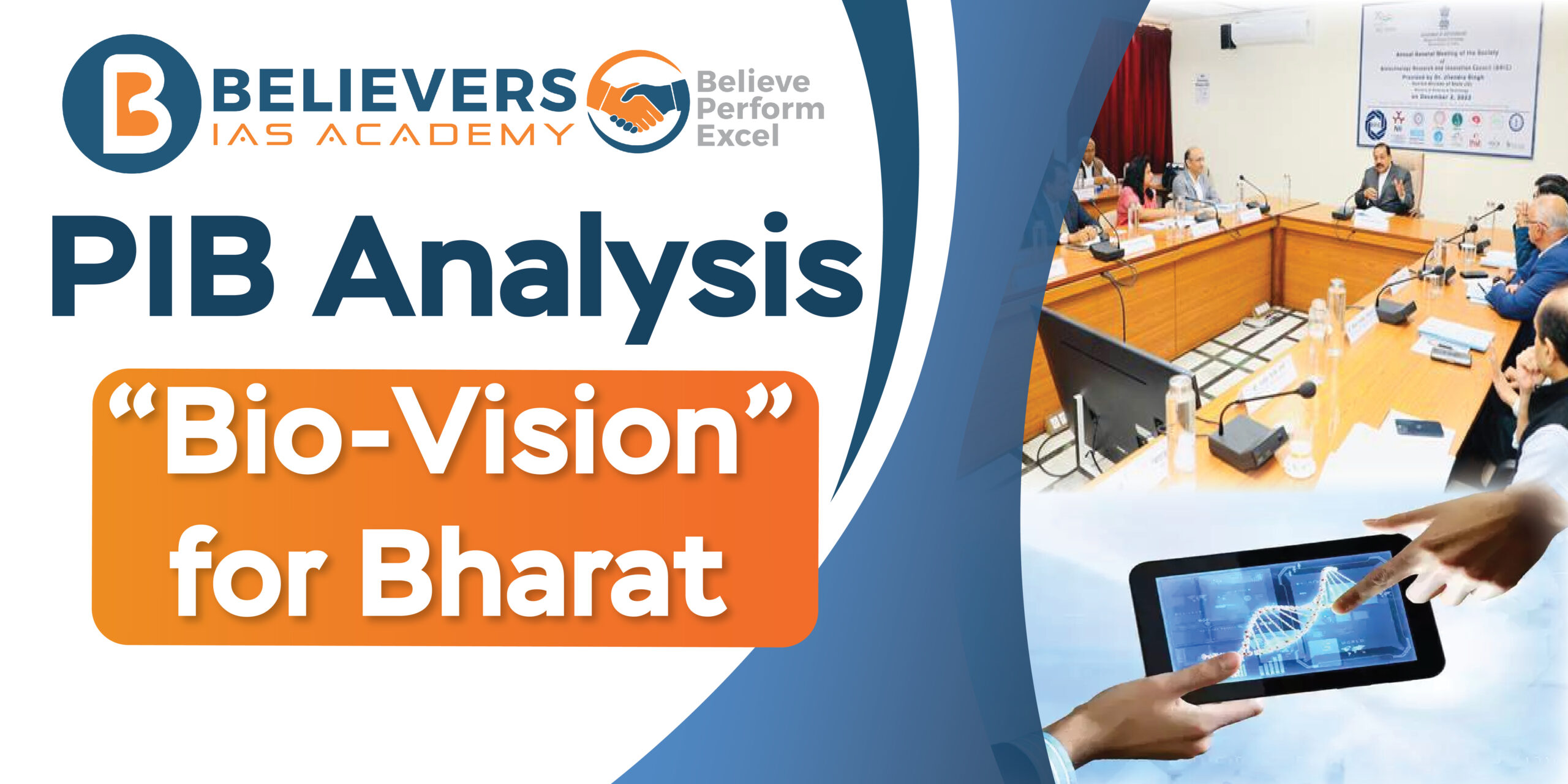“Bio-vision” for Bharat
Context:
In a historic development, Union Minister of State (Independent Charge) for Science & Technology, and MoS PMO, Personnel, Public Grievances, Pensions, Atomic Energy, and Space, Dr. Jitendra Singh addressed the inaugural meeting of the BRIC Society. The meeting took place on November 10, 2023, following Cabinet approval for its registration.
Relevance:
GS-03 (Biotechnology)
Defining “Bio-vision” for Bharat:
- Dr. Jitendra Singh emphasized the need to establish a “Bio-vision” for Bharat during the meeting.
- He highlighted that the newly established Biotechnology Research and Innovation Council (BRIC), as an Apex Autonomous Society, is poised to align with Prime Minister Narendra Modi’s vision for Atma Nirbhar Bharat.
- The focus areas for BRIC include healthcare, food, and energy, with a strategic aim to scale up biotech research and innovation.
Indian Bio-economy Growth:
- The Indian Bio-economy has witnessed a remarkable 13-fold increase over the past decade. Dr. Jitendra Singh quoted PM Modi’s vision, stating that India is on the path to becoming one of the top 10 countries in the global biotech ecosystem.
- The establishment of BRIC is envisioned to be a testament to this vision, fostering collaboration among the brightest minds on a unified platform.
BRIC’s Role and Structure:
- The Department of Biotechnology (DBT), under the Ministry of Science and Technology, is the nodal agency for biotechnology promotion in India.
- Cabinet approval has been granted for the rationalization of 14 Autonomous Institutions (AIs), which will be subsumed under the centralized governance of BRIC.
- This structural adjustment aims to maximize the impact of biotech research nationwide.
Zero Waste Life on Campus Program:
- During the BRIC Society’s first meeting, Dr. Jitendra Singh launched the ‘Zero Waste Life on Campus’ program.
- This initiative focuses on achieving sustainability through the application and adoption of knowledge and technologies, emphasizing co-responsibility in waste management on each BRIC campus.
- The diverse locations of the 13 BRIC campuses will provide valuable insights into recycling technologies and techniques, forging a new direction for integrated waste management research at the community level.




